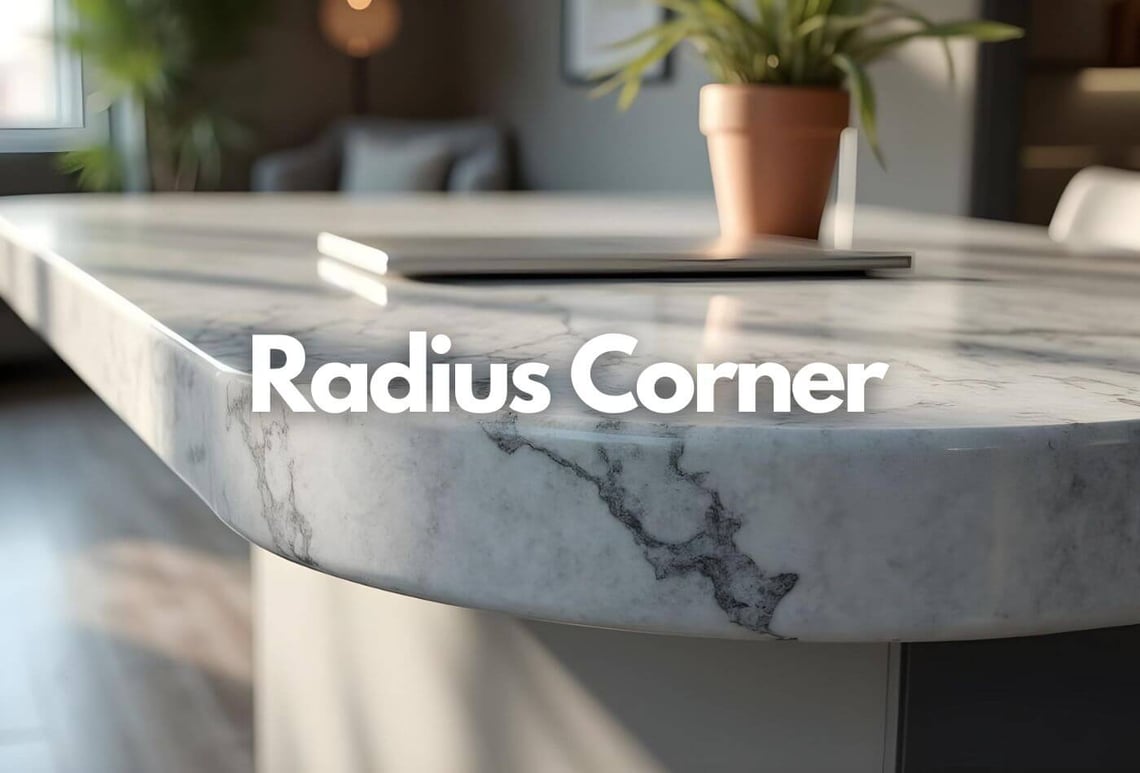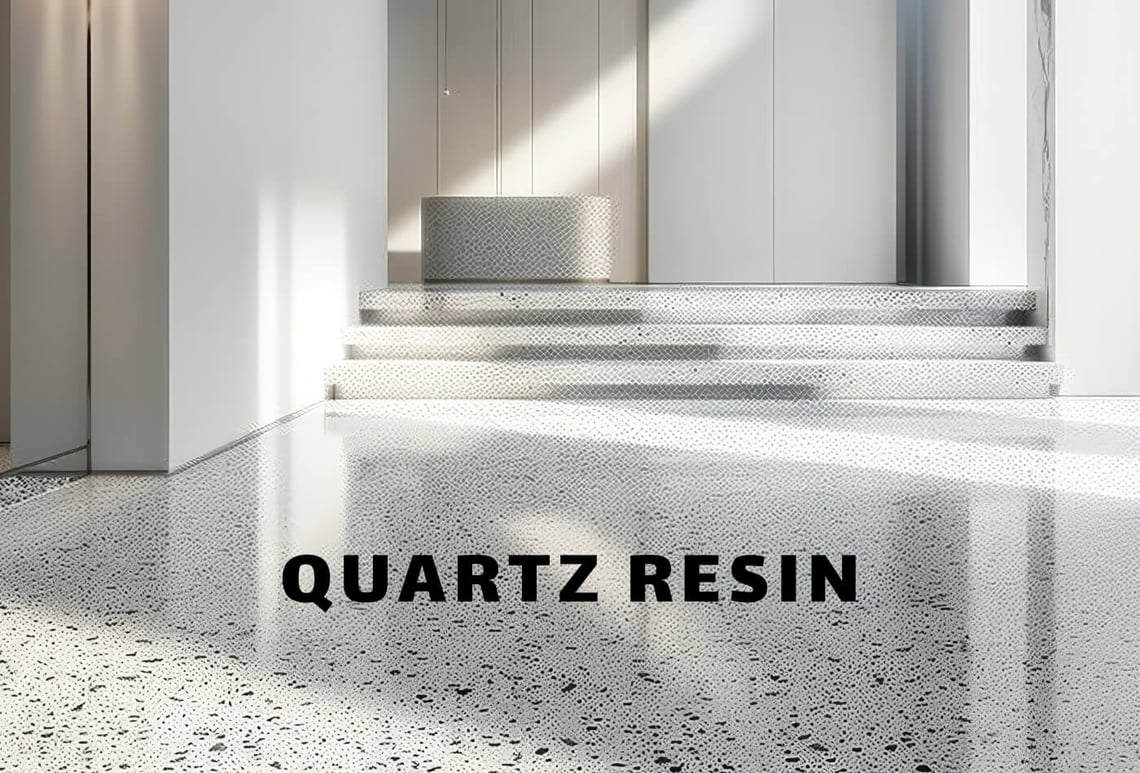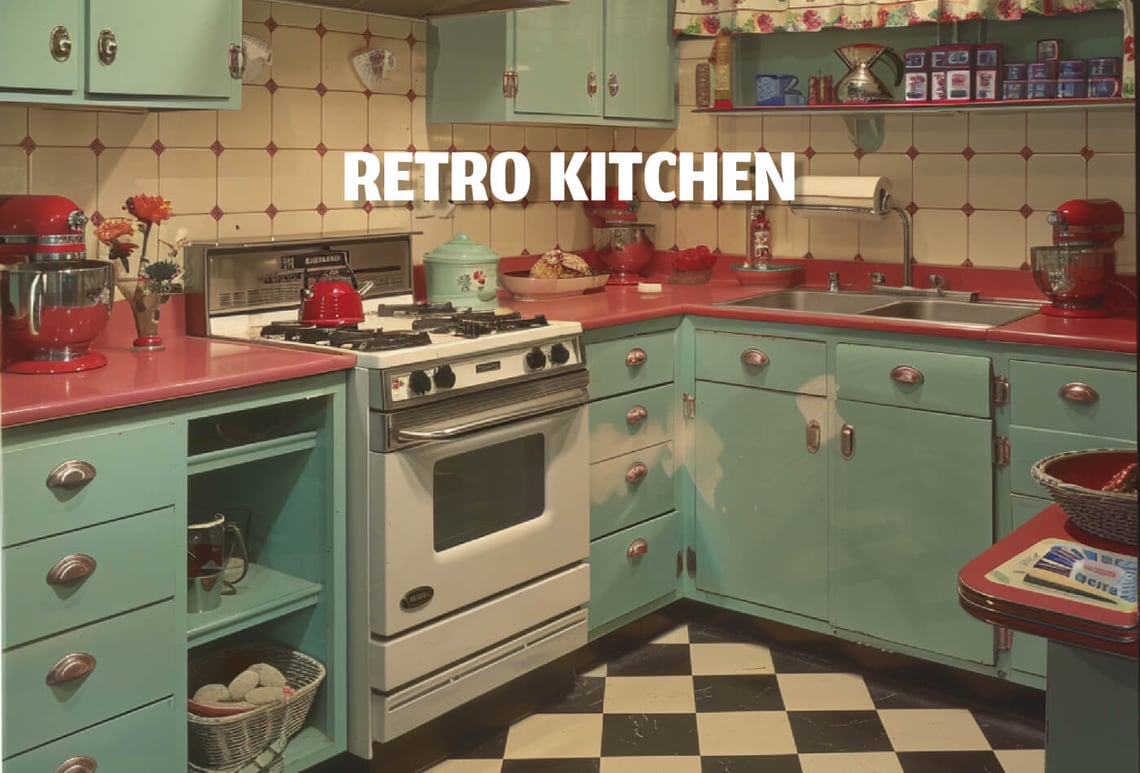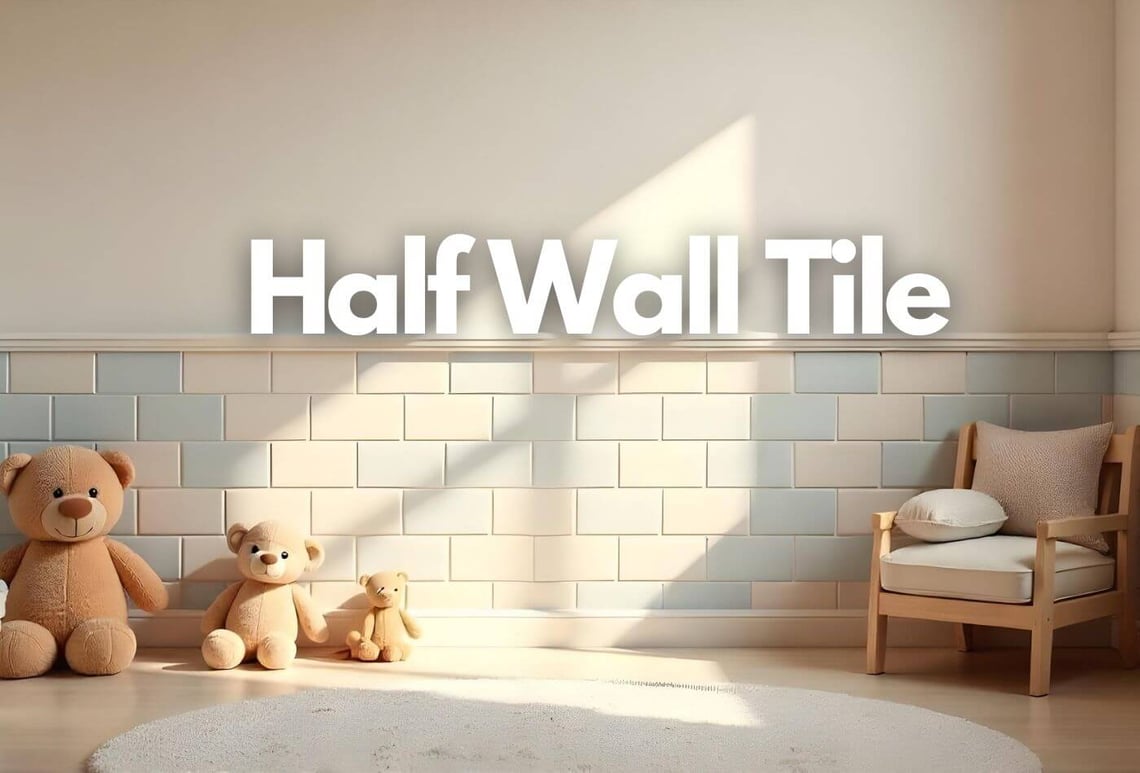Table of Contents
- Radius Corners: How Do They Help With The Safe Worktops?
- Mistakes One Often Makes While Measuring The Radius Corner Of The Worktop!
- How To Measure The Radius Corner Of The Worktops?
- Does The Material Of The Worktop Affect The Radius Corner Shape? If Yes, What Are The Materials That One Can Choose?
- Frequently Asked Questions And Answers
Why is it important to measure the radius corner of the worktops? How important are they? A radius corner on a worktop is simply a rounded or curved edge rather than a sharp, square one. Though it is the smallest of the details, it makes a very big difference by adding a radius to the corners that soften the look of the worktop, making it feel less harsh and more inviting. But it’s not just about looks; radius corners are practical, too. They’re great for safety, especially in busy areas like kitchens where people move around a lot – no sharp edges to bump into! Corner radius will protect your worktop edges from chipping as time goes by. Keep your worktop corners as radius corners that look good and are long-lasting. Perfect for homes with kids or for anyone who values both style and function!
Radius Corners: How Do They Help With The Safe Worktops?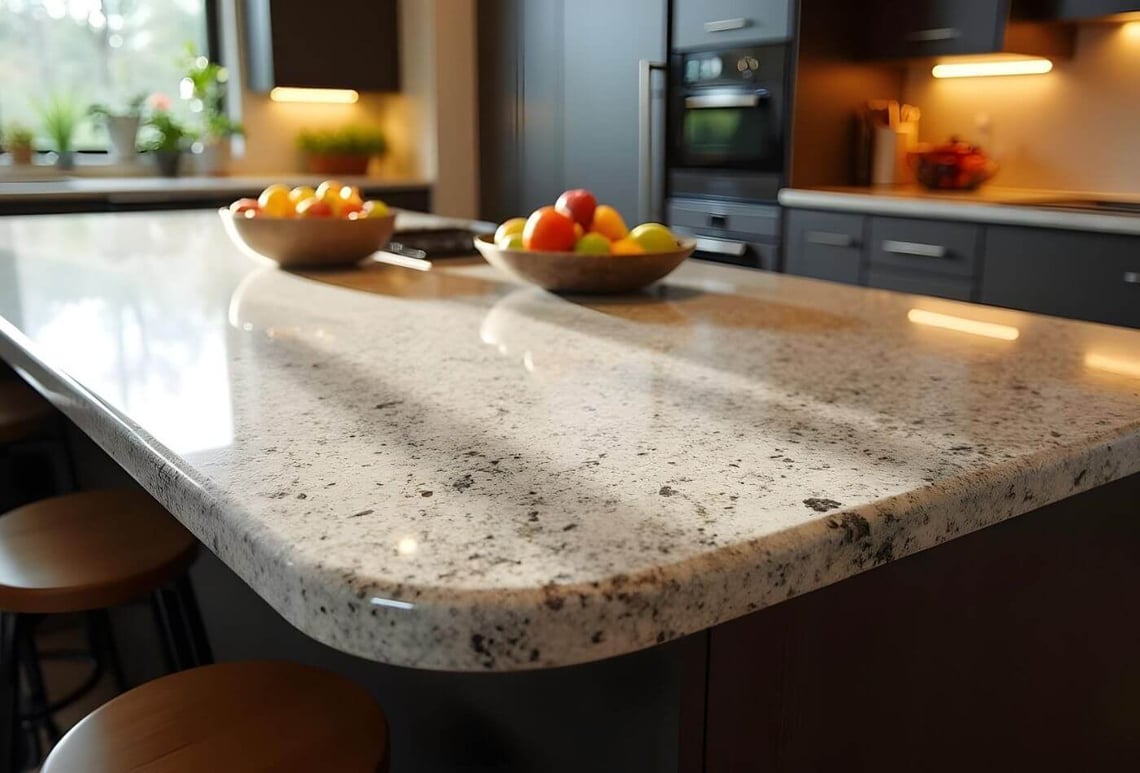
Radius corners can significantly improve your and your loved ones' safety and even the worktop at times, especially in homes with children and elderly family members. This would be very useful. Sharp edges may lead to hits, and there is a chance of getting wounded easily; young kids of the same height might be the easy target. Round corner, reduce risk of injuries. For elderly grandparents, softer edges mean fewer sharp, hard surfaces to accidentally bump into, minimising the risk of bruises or cuts.
Despite this character, they also have corner radius that add functionality by helping the worktop withstand daily wear and tear. Rounded edges are less likely to chip, keeping the worktop looking good over time, even in high-traffic areas. This choice of designs, styles, and practicality makes your kitchen or workspace more fam-jam ambience.
BALTIC BROWN GRANITE

£347.48
Baltic Brown is a coarse-grained granite that has a gorgeous blend of chocolate brown and black with small flecks of light brown. The first look at the granite resembles melted chocolate droplets on a cocoa coloured granite slab.Although it has… read more
COSTA ESMERALDA QUARTZITE

£446.30
Costa Esmeralda Quartzite is a green natural stone that possesses fascinating lines and a very expensive look. Thickness is available in 20mm and 30mm and comes with a polished surface design that gives the space a classy look. This Quartzite… read more
Mistakes One Often Makes While Measuring The Radius Corner Of The Worktop!
Measuring corners for worktops can be uncertain, and a few common mistakes often trip people up. One big mistake is guessing the radius instead of measuring it precisely – even leaving a small inch can make the worktops unpleasant in the final look. Another common slip-up is not considering the worktop's thickness, which affects the corner's appearance. People also sometimes forget to measure each corner separately; assuming they’re all the same size can lead to mismatches. Lastly, not taking into account the surrounding space can be an issue – tight spaces may need a tighter radius for smooth movement around the worktop. Getting the measurements right will make sure your worktop looks great and fits perfectly in your space. Book your slabs at Work-tops, get a free quote and at the same time, the best fabricators team to measure your round corners accurately!
Call +44 0330 113 5868 or mail info@myproject.ai if you experience minor difficulties with your radius corner worktop installation.
How To Measure The Radius Corner Of The Worktops?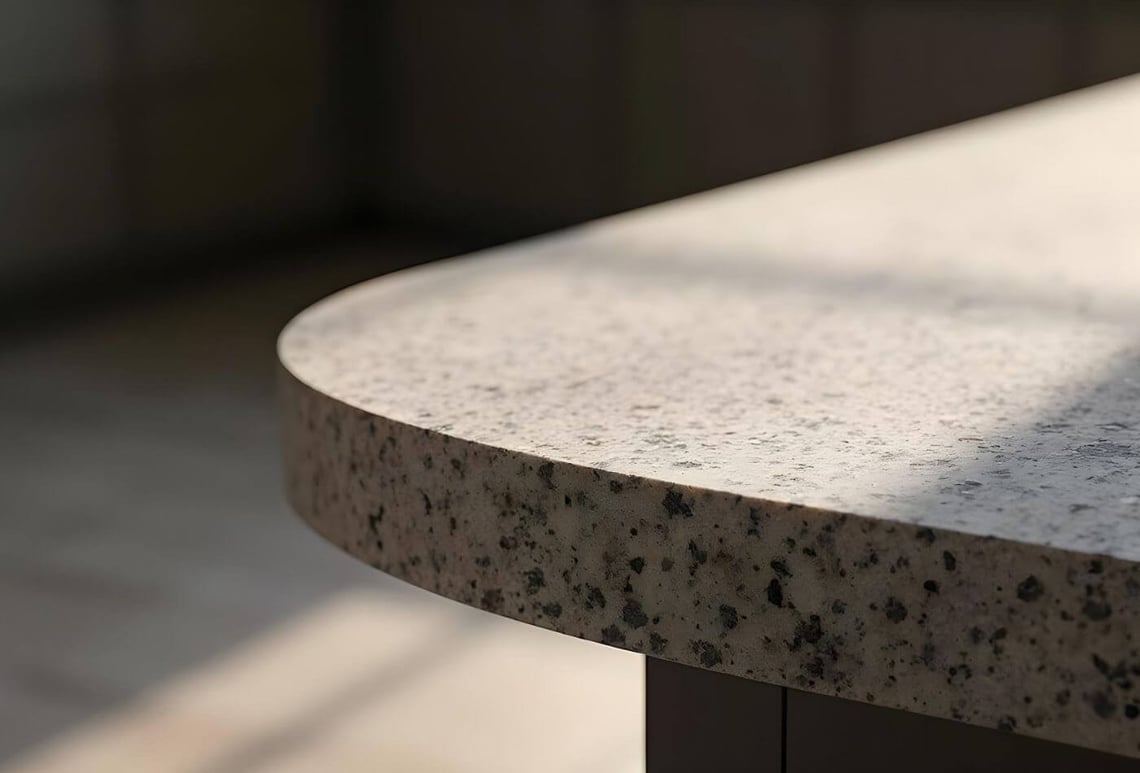
Measuring the corner radius of a worktop can be done accurately with or without expert help! If you're DIY-ing, you can apply this simple rule to measure your worktop’s radius corners accurately: Place a square object (like a piece of paper) along the corner’s edges, mark where the curve starts, then measure the distance from the corner to this point – that’s your radius.
If you need expert help, they’ll use precise tools, like a radius gauge or template, to make exact measurements. High-end tools and equipped tools will ensure more accurate corner radius measurement, especially for complex designs or larger worktops. Either way, with careful measuring, you’ll get the right radius for a perfect fit!
Does The Material Of The Worktop Affect The Radius Corner Shape? If Yes, What Are The Materials That One Can Choose? 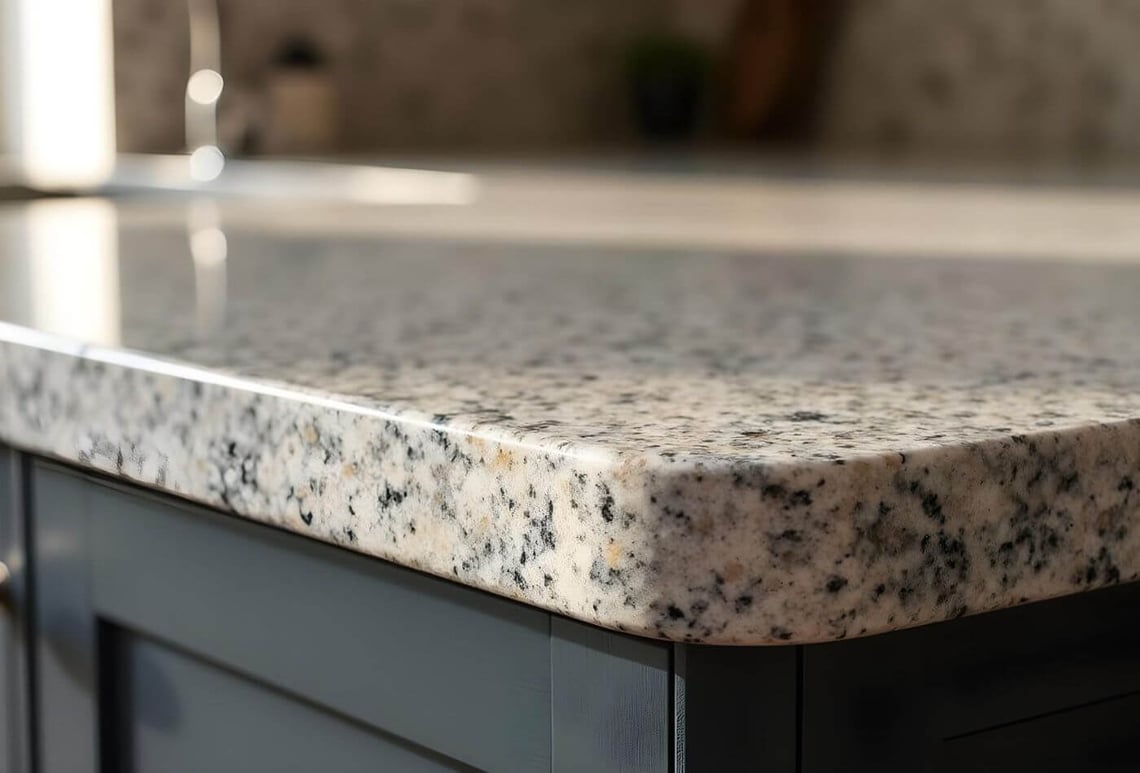
The fact that the material selection can impact the worktop corners is absolutely true. Every material is different, and its own properties determine how easily it can be shaped and how well it holds a radius. Let us quickly look at the important hacks on common worktop materials and how they handle corner radius:
1. Quartz: Quartz is highly durable and versatile, allowing for precise radius corners with a polished finish. Quartz is engineered with a high surface tolerance that is perfect for modern kitchens and requires little care. If you are choosing this to make radius corners of your worktops, then you get a green (Ready-to-go) from us.
2. Granite: Granite can also be shaped well, but because it’s a natural stone, it may have tiny inconsistencies. Rounded corners look great, though they might need a little extra care when cutting in your Granite surfaces. Apparently, it is better than other temporary materials like laminate, bamboo, wood, and other less costly materials.
3. Laminate: Laminate is cost-effective and can easily be shaped into various corner radius, but it’s less durable than stone options. Ideal for lower-traffic areas.
4. Solid Surface (e.g., Corian): This material is highly flexible and great for custom shapes, allowing smooth and seamless corner radius that work well in contemporary designs.
5. Wood: Wood can also handle corners nicely, though it may need regular maintenance, especially in moisture-prone areas.
Picking the right material depends on one's style, budget, and maintenance preferences. Choose your materials wisely because they create radius corners that enhance both aesthetics and functionality.
MATRIX GRANITE GRANITE

£391.63
Matrix Granite is a very sleek and sophisticated choice that brings a modern edge to any space as well. Available in 20mm thickness, this black granite slab with a leather finish offers a smooth yet textured surface, adding depth and… read more
PATAGONIA GREEN QUARTZITE
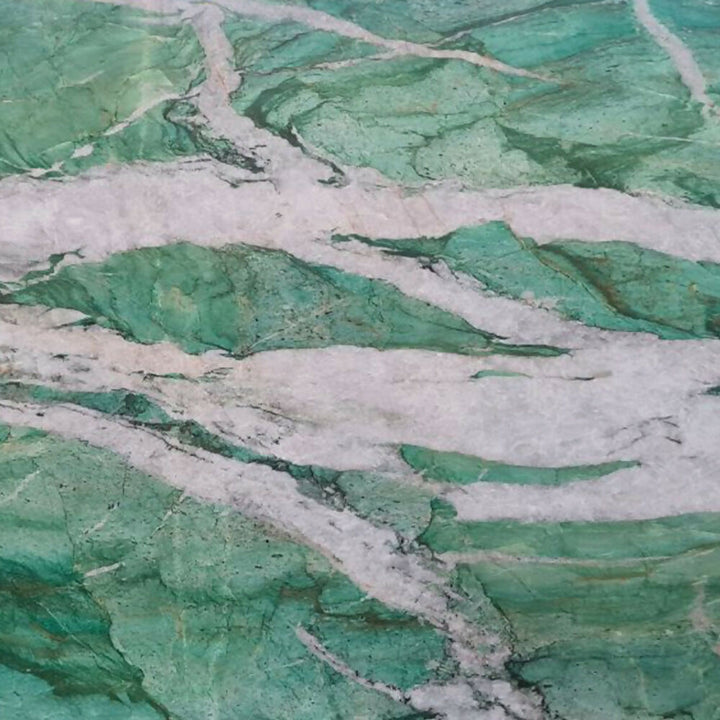
£1,110.50
Patagonia Green Quartzite is a stunning natural stone with intricate green and earthy tones, perfect for creating a luxurious aesthetic. Thickness is available in 20mm and it boasts a polished finish that adds elegance to any space. Offering fantastic resistance… read more
Frequently Asked Questions And Answers
1. What Should You Consider Before Customising Radius Corners For Worktops?
Before customising corners, consider the style and function of your space, the amount of traffic in the area, and safety needs (especially for homes with kids or elderly family members). It’s also essential to consider the worktop material and surrounding space, as some corners may need tighter radii for easier movement. Finally, ensure you have accurate measurements for a perfect fit.
2. Does The Material Of The Worktop Affect The Corner Shape?
Yes, the material of the worktop affects the corner shape! Materials like quartz, granite, and solid surfaces (e.g., Corian) allow for more precise and smooth corners, while laminate and wood can also be rounded but may be less durable or need extra care. Each material’s flexibility and thickness determine how well it can handle different radius shapes.
3. Can Radius Corners Be Customised For All Types Of Worktops?
Generally, corner radius can be customised for most worktop materials, though certain materials may have limitations. Quartz, granite, solid surfaces, and laminate allow for a range of customisations. However, some materials, like marble, may require special handling to avoid chipping. Consulting with a professional can help you understand the best options for your chosen material.
4. Are Radius Corners Better For Certain Worktop Styles (E.g., Islands Vs. Countertops)?
Yes, corner radius are especially useful for kitchen islands, which are more exposed to movement around all sides. Rounded edges make islands safer in high-traffic areas, creating a smoother flow around the worktop. For regular countertops, corner radius are also helpful but may be used more selectively, such as on outer edges, to balance functionality and design.
P.s. The readers are informed that none of the content available on any of the pages of Work-tops.com should be taken as legal advice and that Work-tops will not be held accountable for your use of the information contained in or linked from these web pages.

